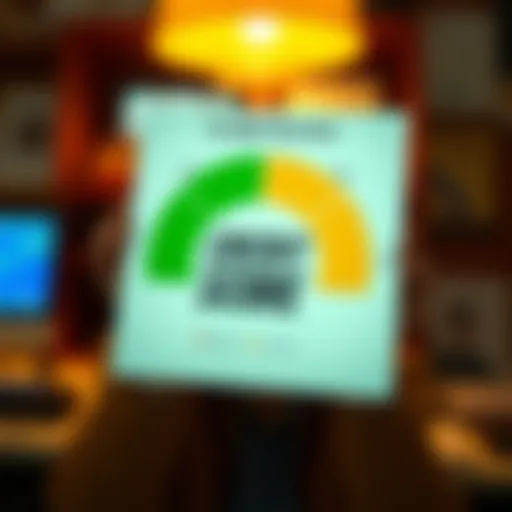Understanding the Role and Influence of Economists


Intro
Economists play a pivotal role in the intricate web of society, influencing everything from government policies to individual investment decisions. Their job isn't just about crunching numbers; it's about weaving together economic theories and real-world applications to guide and inform decisions that affect our everyday lives. In this piece, we unpack what it means to be an economist, what methods they employ, and how their work directly impacts various sectors. By understanding these facets, readers will gain a nuanced perspective on the essential role economists hold in shaping financial narratives and driving investment strategies.
Investment Terminology
To truly appreciate the work of economists and their impact, it’s critical to grasp some fundamental investment terminology. Here, we define key concepts that serve as the backbone of financial discussions.
Key Definitions
- Economics: The study of how individuals and societies choose to allocate resources. It encompasses both microeconomics (individual behavior) and macroeconomics (overall economic dynamics).
- Market Equilibrium: A state where supply equals demand, resulting in stable prices. Understanding this helps economists forecast price movements and market behavior.
- Opportunity Cost: The value of the next best alternative foregone when a decision is made. This concept is crucial in investment decisions, guiding where to allocate resources most effectively.
Commonly Used Terms
- Bull Market: A market condition where prices are rising or are expected to rise, often associated with investor optimism.
- Bear Market: Opposite to a bull market, this reflects declining prices and generally demise in investor confidence.
- Diversification: A risk management strategy that involves spreading investments across various asset classes to minimize risk.
By familiarizing ourselves with this jargon, we can better navigate discussions related to economic principles and their practical applications.
Expert Advice
When seeking insights from economists, one finds a treasure trove of strategies that can aid both individuals and organizations in making sound investment choices.
Investment Strategies
- Active vs. Passive Investing: Active investing involves selecting securities in an effort to outperform the market, while passive investing typically follows market indices. Each approach has its merits and risks.
- Value Investing: This strategy focuses on identifying undervalued companies and investing in them with the expectation that their true value will be recognized over time.
- Growth Investing: Targeting companies that exhibit signs of above-average growth, this strategy may involve taking on higher risks but also has the potential for substantial return.
Risk Management Tips
- Assess Risk Tolerance: Understanding one’s comfort with risk is essential in making informed choices.
- Regularly Review Investments: Economic landscapes change, and so should your investment portfolio, ensuring alignment with current market conditions.
- Stay Informed: Following market trends and economic indicators can provide insights into when to diversify or adjust investments.
"An economist can be likened to a weather forecaster: while they both attempt to predict outcomes based on available data, their forecasts need constant reassessment as new information emerges."
Economists are not merely observers of the financial landscape; they are integral players in shaping our understanding of economics and directing investments. With evolving challenges within the field—from navigating globalization to addressing income inequality—their roles are paramount now more than ever.
For further reading on economic theories and principles, visit:
Understanding Economists
The role of economists extends beyond mere number crunching. They are the architects of current economic discourse, weaving analysis and insight into the fabric of our society's financial frameworks. To fully appreciate their significance, it's essential to demystify what an economist truly represents. This exploration promotes awareness about the vast influence economists wield over policy creation, business strategy, and ultimately, the everyday financial decisions faced by individuals and organizations alike.
The contemporary economy is a complex web of choices and consequences, often influenced by economic theories and principles. By understanding economists, we unravel not just their methodologies, but also their capacity to predict and navigate economic fluctuations. Additionally, this section elaborates on the multi-faceted nature of the profession, depicting economists as vital players in the puzzle of societal growth and stability.
Defining the Term 'Economist'
An economist is commonly seen as a professional who specializes in the study of production, distribution, and consumption of goods and services. Economists analyze data, make forecasts, and inform policymakers. However, their definitions often intersect with sociology, political science, and even psychology, making the boundaries of their field quite permeable. This richness in definition highlights that economists aren't merely analysts; they're also theorists and critical thinkers who can convert complex economic variables into actionable insights.
Historical Development of Economic Thought
Economics as a discipline has evolved tremendously through the ages, shaped by varying schools of thought that critique, build upon, and sometimes outright dismiss previous ideas. It's fascinating to see how the perspectives of different economists from early history to present day form a continuum where current practices can be traced back to their roots.
Classical Economists
Classical economists, like Adam Smith and David Ricardo, laid the groundwork for modern economic thought. They emphasized free markets and competition as the forces that drive economic growth. Their key characteristic revolves around the idea of self-interest driving economic efficiency, a notion that still holds weight today. They believed that markets are best left alone, suggesting that unregulated competition would lead to widespread prosperity.
A unique feature of classical economics is its reliance on the principle of the 'invisible hand'—how individual self-interest can lead to positive societal outcomes. While the approach has its champions, its disadvantages include inadequate attention to inequities and market failures, rendering it less effective in addressing modern socioeconomic issues.
Keynesian Economics
Keynesian economics, introduced by John Maynard Keynes during the Great Depression, pivoted the focus towards total spending, or demand, in the economy. This school of thought emphasizes that during downturns, active government intervention is crucial to stimulate demand and ensure economic stability. The key characteristic here is that economies can be inherently unstable if left to their own devices.


Keynesian economics offers a unique lens in that it insists on the importance of government action, particularly during recessions. The advantage of this approach is that it provides a robust framework for understanding the role of fiscal policy in economic recovery; however, critics argue it can lead to over-reliance on government and potential inefficient allocations of resources.
Neoclassical Perspectives
Neoclassical economics builds upon the ideas of the classical economists with an increased focus on individual choice and marginal utility. Neoclassical thinkers like Alfred Marshall and pareto efficiency advocate for market equilibrium, where supply meets demand. The fundamental characteristic revolves around the optimization of decision-making processes—how consumers and firms aim to gain maximum satisfaction from limited resources.
A unique feature of this perspective is its mathematical underpinning, allowing economists to model scenarios quantitatively. While this methodological advancement enhances precision, it sometimes oversimplifies human behavior, leading to critiques that it neglects the complexities of real-world decision making.
Types of Economists
Economists can be broadly categorized into several types, each playing unique roles tailored to their areas of interest. Dividing the discipline this way allows for a more focused understanding of how these professionals impact policy and theory.
Microeconomists
Microeconomists examine individual and firm behavior in specific markets. Their main focus is on aspects like supply and demand, pricing strategies, and consumer preferences. Their core characteristic lies in their ability to dissect markets down to the foundational level, ensuring an intricate understanding of economic interactions.
The advantage of this detailed lens is that it offers crucial insights for policymakers and businesses; however, it might overlook broader economic aggregations, leading to an incomplete picture of overall economic health.
Macroeconomists
In contrast, macroeconomists take the broader view—looking at entire economies or countries. Their work often revolves around national income, inflation, and employment rates. The key trait of macroeconomists is that they analyze aggregates, drawing conclusions about economic growth and overall health by considering factors like gross domestic product.
This holistic approach enables them to comprehend complex relationships between various economic indicators. On the flip side, focusing too much on aggregates can dilute the particularities that microlevel trends showcase.
Development Economists
Development economists focus on improving economic conditions in developing countries. They analyze both the processes of growth and the obstacles facing impoverished nations. The key aspect of their work is emphasizing sustainability and equitable resource distribution. They play a crucial role in global conversations about aid and investment.
The unique feature of development economics is its blend of practical policy application with theoretical analysis, aiming for long-term solutions to poverty and inequality. However, challenges remain, including differing political landscapes and the risk of interventionist policies failing to align with local needs.
Economists serve not just as advisors but as vital cogs in the machinery of policy formulation, impacting everything from daily financial decisions to broader national economic strategies.
This section has laid the foundation for understanding the diverse roles economists play in society, their historical evolution, and how various schools of thought contribute to the greater economic narrative. In following sections, the methodologies they employ and their implications on economic practices will further illuminate their significance.
The Methodologies of Economists
Understanding the methodologies employed by economists is crucial, as these methods shape the way they analyze data, draw conclusions, and offer advice. Economists use various frameworks that can either be quantitative or qualitative, relying heavily on algorithms, models, and data sources to substantiate their arguments. Taking a closer look at these methodologies provides a comprehensive understanding that is essential for anyone interested in the economic landscape, whether as a curious onlooker or an aspiring investor. Each approach carries its own set of implications, advantages, and limitations that warrant thorough exploration.
Quantitative versus Qualitative Analysis
Quantitative analysis provides a numerical foundation that allows economists to apply statistical reasoning to their models. It focuses on measurable variables, offering clear graphs and charts that depict economic trends. On the flip side, qualitative analysis delves into the more subjective aspects of economic phenomena, relying on narratives and forums to illustrate consumer behavior or market sentiments. For instance, while data about consumer spending is numerical, understanding the emotional impetus behind that spending often requires qualitative insight. It’s a bit like comparing apples to oranges; both are fruits, but they offer distinct flavors.
Utilization of Economic Models
Statistical Models
Statistical models form a backbone in economic analysis. They allow economists to make sense of large data sets and draw meaningful conclusions. One key characteristic of statistical models is their ability to sort through numerical relationships between different economic indicators, such as GDP growth and unemployment rates. These models are often preferred due to their precise calculations and replicable results. However, the uniqueness of statistical models lies in their dependence on existing data, which can sometimes lead to findings that don't explain the whole picture, especially in volatile economic conditions.
Computational Models
Shifting gears to computational models, these are game-changers in the realm of economics. A standout feature of computational models is their use of algorithms and simulations to test various economic scenarios. By simulating different economic policies, economists can see potential outcomes without real-world implementation, saving both time and resources. Still, these models have their drawbacks. They often rely on assumptions that may not hold true in all cases, and the complexity can sometimes obscure the underlying economic principles.
Predictive Models
Then there are predictive models which take data analysis a step further. Their primary goal is forecasting future economic events based on historical data. A significant characteristic of predictive models is their reliance on time series data to identify trends and make projections. This makes them a popular choice among economists looking to guide policy decisions or investment strategies. Nevertheless, relying on predictive models can be a double-edged sword. While they can offer a glimpse into potential future conditions, unexpected variables, such as political instability or global disasters, can render these predictions inaccurate.
Data Sources and Reliability
The effectiveness of any economic analysis hinges upon the quality of data utilized.
Primary Data Collection


Primary data collection provides firsthand information gathered for a specific purpose, fostering greater reliability. It involves methods like surveys and interviews, which directly capture the economic behavior of individuals or businesses. As direct data sources, they offer tailored insights that secondary sources may lack, making it a solid choice for economists aiming to deeply understand a particular market. However, these methods can be time-consuming and resource-intensive, potentially introducing biases if sample sizes or methodologies aren’t adequately addressed.
Secondary Data Utilization
Conversely, secondary data utilization involves analyzing data previously collected for another purpose, like government reports or academic studies. An attractive aspect of secondary data is its accessibility and cost-effectiveness; it enables economists to conduct analyses without the legwork of primary data collection. Yet, the challenge lies in the context: it may not be entirely aligned with the current inquiry, leading to potential gaps in relevance.
Challenges in Data Interpretation
Lastly, challenges in data interpretation must not be overlooked. Even with robust data, the interpretation of economic information can lead to varying conclusions based on perspective or methodological approach. This nuanced characterization makes it crucial for economists to consider the broader context when conveying their findings. Misinterpretation can skew understanding, resulting in misguided policy recommendations or investment strategies.
Economists must navigate the minefield of data intricacies, ensuring that their analyses are as accurate and insightful as possible.
In summary, the methodologies of economists are varied and complex, each offering unique insights and presenting challenges. Recognizing the strengths and weaknesses of these approaches is vital in appreciating the full spectrum of economic analysis.
Application of Economic Principles
The application of economic principles plays a critical role in understanding how economic theories translate into real-world actions and decisions. Economists take theoretical frameworks and apply them to various sectors, influencing a multitude of outcomes. This section dives into various applications, including how these principles guide economic policy, shape business strategies, and affect the operations of non-governmental organizations.
Economic Policy and Decision Making
Fiscal Policy
Fiscal policy refers to the use of government spending and taxation to influence the economy. One major aspect of fiscal policy is its capacity to manage economic fluctuations. By increasing spending during recessions, governments can stimulate demand, thus fostering growth. This cyclical stabilizer characteristic is crucial to maintain economic equilibrium. It is a popular choice in economic discussions due to its immediate impact on growth. However, one unique feature of fiscal policy is that it can also lead to increased public debt, complicating long-term financial sustainability. This becomes significant when evaluating how fiscal measures can lead to unintended consequences in the future.
Monetary Policy
Monetary policy involves managing the money supply and interest rates to influence economic activity. Central banks, like the U.S. Federal Reserve, utilize this approach to ensure price stability and economic growth. The flexibility of monetary policy makes it particularly attractive. Economists analyze interest rates and inflation trends to gauge economic health. One downside, however, is that extensive monetary easing can lead to asset bubbles, which present risks when economic conditions change suddenly.
Trade Policy
Trade policy governs how countries interact economically, covering tariffs, trade agreements, and international regulations. A distinct aspect of trade policy is its ability to promote domestic industries by protecting them from foreign competition. This protectionism can foster innovation within a local context. Nonetheless, trade policies can also lead to retaliatory measures from other nations, potentially escalating into trade wars. Such outcomes spotlight the delicate balance economists must maintain when advocating for specific trade frameworks.
Impact on Business Strategies
Market Analysis
Market analysis involves studying and interpreting data to understand engaging trends in an economy. This analytical tool is pivotal for businesses to position themselves strategically. By assessing market demands and competition, organizations can tailor their offerings to meet consumer needs. This data-driven approach often leads to more informed decision-making. However, one potential disadvantage can arise from placing too much reliance on data, which may lead to overlooking the human element in markets.
Consumer Behavior Insights
Understanding consumer behavior provides vital insights into purchasing decisions, motivations, and preferences. This knowledge helps companies develop products that meet market needs effectively. The key characteristic of consumer behavior analysis is its focus on the emotional and psychological aspects of buying. While this approach offers a qualitative edge, its drawback may involve the variability of human behavior, making predictions challenging at times.
Investment Strategies
Investment strategies are guided by economic principles that help investors maximize returns while managing risks. A crucial aspect is asset allocation, which considers market conditions and individual goals. This approach promotes diversification as a risk mitigation measure. Nevertheless, overemphasis on various strategies might lead to missed opportunities during a market's favorable rise.
Role in Non-Governmental Organizations
International Aid
International aid programs serve as a lifeline for countries recovering from crises or developing economically. Economists working in this realm analyze the most effective use of resources for maximum community impact. This strategic alignment ensures funds are directed toward sustainable initiatives. Yet, there's a risk of dependency on aid, which can stifle local economies in the long run.
Development Projects
Development projects focus on enhancing economic infrastructures, such as education and healthcare. They are crucial for lifting communities out of poverty. Economists play a key role here by assessing the viability and long-term benefits of such projects. One unique feature is that, despite their benefits, these projects can sometimes face local resistance due to cultural perceptions or lack of trust in external interventions.
Environmental Issues
Economists involved in environmental issues analyze the balance between economic growth and ecological sustainability. Their insights help shape policies that protect natural resources. A key characteristic of this work is its interdisciplinary nature, requiring collaboration between various fields. However, achieving consensus on environmental policies often presents challenges, as different stakeholders may have conflicting interests.
"Understanding economics isn't just about numbers; it's about comprehending the dynamics that shape our world."


Contemporary Challenges Faced by Economists
The role of economists has grown increasingly complex with the pace of global change. Understanding the contemporary challenges faced by these professionals is essential for recognizing how economic ideas and policies evolve in response to a rapidly shifting environment. It's not just about deciphering numbers anymore; it's recognizing the implications of these figures on everyday lives.
Global Financial Crises
Global financial crises are like tempestuous storms on the economic horizon. They can arise unexpectedly, leaving chaos in their wake. The last decade or so has seen these upheavals shape not only financial markets but also the broader economic policies that govern nations. Economists play a critical role in analyzing patterns that precede such crises and developing preventative measures. Their insights can help safeguard economies against potential downturns. The 2008 financial crisis offered harsh lessons on risk management and regulatory practices. Economists are not just observers; they’re key players who lend their expertise to mitigate future risks.
The Rise of Alternative Economic Theories
As the traditional economic models come under scrutiny, alternative economic theories are gaining traction. This shift indicates a desire for fresh perspectives on age-old questions. Approaches like behavioral economics challenge the classical notion that people always act rationally. Instead, it highlights how psychological factors influence economic decisions. The implications of these alternative models are vast; they inform everything from public policy to marketing strategies. Economists now grapple with varying schools of thought, adapting their methods to incorporate new insights from emerging theories. The challenge lies in integrating these perspectives without losing sight of foundational principles.
Ethical Considerations in Economic Research
Transparency in Methodologies
Transparency in methodologies is becoming more critical than ever as the demand for accountability intensifies. Economists must not just produce findings but also provide clear insights into how those findings were derived. This practice builds trust and encourages informed debate among policymakers and the public. The benefit of transparency is immense; it demystifies the often complex economic analyses and makes the research more accessible to non-experts. As a unique feature, transparency also helps prevent potential biases in research outcomes, allowing a broader audience to critique and contribute to findings.
Conflict of Interest
Conflict of interest presents a significant challenge in economic research. Economists may find themselves in situations where their personal or financial interests could taint the objectivity of their work. Recognizing and disclosing such conflicts is vital for maintaining integrity. This transparency enhances credibility. When economists reveal affiliations or funding sources, it encourages an environment of openness that is crucial for robust economic discourse. However, balancing financial support with impartiality remains a tricky endeavor. Thus, it asks for rigorous self-regulation within the discipline, promoting an ethical landscape where trust can flourish.
For more on economic theories and recent findings, visit Wikipedia or Britannica to delve deeper into these compelling topics.
The Future of Economic Analysis
The landscape of economic analysis is undergoing a significant transformation, driven largely by technological advancements and shifting societal values. Understanding the future of economic analysis is crucial for economists, policymakers, and the general public alike. As we look ahead, three primary elements will shape this future: emerging trends in economics, integration of technology in research, and the evolving role of economists in society. These components not only signify changes in methodology but also emphasize the importance of adaptability in a world that is increasingly interconnected.
Emerging Trends in Economics
Behavioral Economics
Behavioral economics delves into the psychological underpinnings of economic decisions. Rather than treating individuals as mere calculators of utility, this field acknowledges the complexities of human behavior and the influence of biases on decision-making. One key characteristic of behavioral economics is the focus on real-world scenarios, since it often challenges conventional economic assumptions. For this article, this approach is beneficial as it offers a more nuanced understanding of consumer behavior, which is essential in developing effective economic policies.
A unique feature of this area is its ability to explain irrational behaviors—like why people save less or invest in volatile assets—where traditional models might falter. However, behavioral economics is not without its criticisms; some argue that its findings may not always be easily quantifiable, complicating the process of formulating hard-data-driven policies.
Digital Currencies
The rise of digital currencies is reshaping the financial landscape, introducing new forms of money that operate outside traditional banking systems. This trend is characterized by innovations like cryptocurrencies, which use decentralized technology to facilitate transactions. For this article, the exploration of digital currencies highlights their potential to enhance financial inclusion and create a more efficient payment system.
A distinctive feature of digital currencies lies in their ability to operate on a peer-to-peer basis, eliminating intermediaries. While this offers greater autonomy to users and can lower transaction fees, it also raises concerns regarding security and regulatory oversight. Understanding these dynamics is critical, as the implications of digital currencies extend beyond economics and into societal structures.
Sustainable Economics
Sustainable economics addresses the pressing need for policies that ensure long-term environmental health while fostering economic growth. This area is defined by its commitment to balance economic activity with ecological preservation. Its key characteristic is the integration of environmental costs into economic planning. In the context of this article, sustainable economics offers a framework for thinking about the viability of economic strategies that future generations will inherit.
A unique feature of sustainable economics is its interdisciplinary approach, drawing knowledge from environmental science, policy analysis, and economics. This can enhance decision-making, but it also complicates data collection and model creation, due to the often unpredictable nature of environmental factors. Navigating these complexities is essential for economists as they strive to address escalating climate challenges.
Integration of Technology in Economic Research
Big Data
Big data refers to the vast volumes of structured and unstructured information produced every day. Its significance in economic research can’t be overstated. This burgeoning field enables economists to analyze unprecedented amounts of data, revealing patterns and trends that were previously invisible. One of big data's main strengths is its potential to enhance predictive accuracy in economic modeling, making it a highly favorable area for this article.
The unique feature of big data is its capability to streamline analyses, allowing economists to draw insights from real-time information. However, it also poses challenges, especially when it comes to data privacy and the ethical use of information. Navigating these dilemmas will be crucial as economists embrace big data while ensuring responsible research practices.
Artificial Intelligence Applications
Artificial intelligence (AI) applications are beginning to revolutionize the way economic analysis is conducted, leading to significant advancements in predictive modeling and data interpretation. The key characteristic of AI in economics is its ability to automate complex calculations and simulate various economic scenarios, making it a popular choice for enhancing the efficacy of economic research featured in this article.
A unique aspect of AI is its capacity for constant learning and adaptation to new data. This can lead to more sophisticated models that reflect rapidly changing economic environments. However, there are concerns about over-reliance on technology which could lead to a lack of critical human insight. As such, balancing AI capabilities with human analysis is imperative.
The Evolving Role of Economists in Society
As the world grapples with multifaceted challenges, the role of economists is becoming increasingly complex. No longer are they seen merely as number crunchers; today, they are influential figures in addressing social issues such as poverty alleviation, climate change, and economic inequality. They are tasked with not only understanding economic trends but also communicating these effectively to various stakeholders—from government bodies to grassroots organizations.
Furthermore, economists must be prepared to engage with the ethical implications of their work. Questions related to transparency, accountability, and the societal impact of economic policies are now at the forefront of dialogue within the field. As such, economists will need to adapt their practices and enhance their skill sets to remain relevant in a rapidly changing world.















